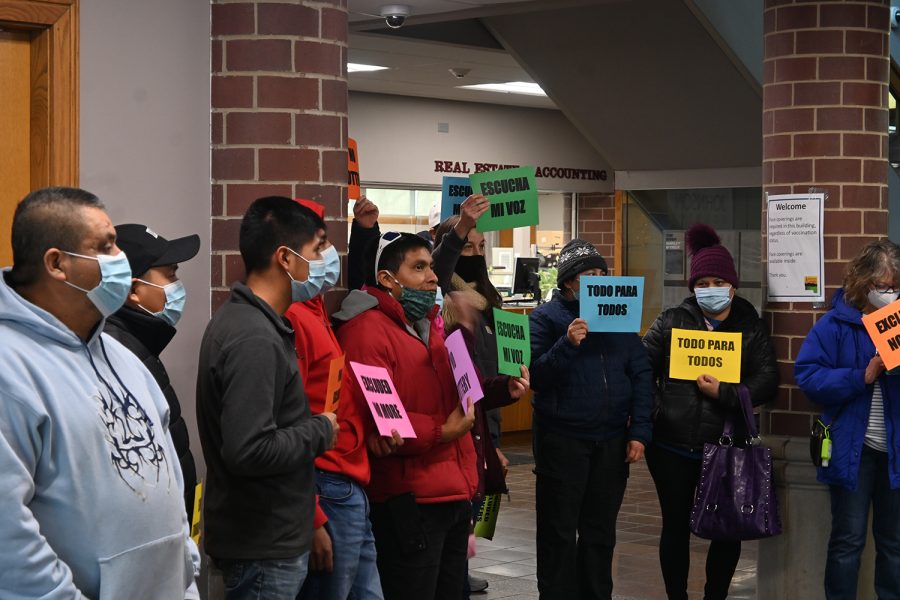This spring, 80 soldiers from the 294 Area Support Medical Company, based in Washington, Iowa, will leave America for West Africa.
Their deployment comes as part of a nationwide humanitarian mission, said Col. Greg Hapgood of the Iowa National Guard, and their goal will be to combat the spread of Ebola.
Thus far, nearly 7,000 have died from the Ebola virus in western Africa, according to the World Health Organization. The U.N. health agency reports there have been more than 16,000 confirmed, suspected, or probable cases of Ebola in the three countries hardest hit by the disease — Liberia, Guinea, and Sierra Leone.
So far, in Iowa, there have been no confirmed cases, but one traveler who visited one of those countries had been quarantined after officials said he or she was at a moderate risk.
The WHO has set goals, hoping to isolate 70 percent of the infected and to safely bury 70 percent of the victims in three hardest-hit countries by today.
To combat the disease’s spread, the members of the Iowa National Guard will utilize specialty training in the western Africa countries.
After the group was selected as a good candidate for deployment, Hapgood said this triggered “pre-mobilization training” to prepare the soldiers for the unique conditions needed to fight Ebola in countries such as Liberia and Sierra Leone.
Then, the troops will leave Iowa for another base in the United States to receive further training before departing for West Africa, he said.
“They will receive some very specific medical training that will help them on this particular mission,” Hapgood said. “You have to keep in mind this is already a medical unit, so they’re very familiar with hemorrhagic fevers or other communicable diseases. They’re very well-versed in protocols about how to keep health-care workers safe.”
Hapgood, however, noted the units on this operation will only treat U.S coalition and personnel, not the local population.
The personnel the Iowa soldiers will support, Hapgood said, are mainly logistical, engineering, and medical people whose job is to create local infrastructure, such as treatment centers to combat the outbreak.
In addition to providing medical treatment to U.S troops, the soldiers will provide support and education to local civilian health-care professionals.
“Our job is to help enable those medical providers to do what they need to do to help fight Ebola,” Hapgood said.
The group will be deployed as a part of the humanitarian mission Operation United Assistance, which began in early October as thousands of those logistical, engineering, and medical troops across the United States were notified of deployment.
Fort Campbell, located along the Tennessee/Kentucky border, sent 700 of those troops.
Master Sgt. Brian Sipp, the Fort Campbell spokesman, said the troops were deployed late October and have been in Liberia for about a month.
“Their primary mission is to synchronize all the efforts that are going toward building the Ebola-treatment units, training the health-care workers, and supporting all the logistics to help make that happen,” he said.
Hapgood said the Iowa troops’ mobilization will last approximately a year, and it’s likely they’ll be in West Africa for at least six months.
After the troops return, Hapgood said they will undergo a mandatory 21-day quarantine period, which all U.S. troops returning from West Africa are required to undergo.
Christian Althaus, a mathematical epidemiologist at the University of Bern, Switzerland, who has recently worked on models to predict Ebola outbreaks in West Africa, said he believes further international aid such as Operation United Assistance could help reduce the rate of Ebola transmission.
“The current situation is not quite as dramatic as the worst-case scenarios predicted, i.e., the number of new cases of Ebola virus disease does not increase exponentially anymore,” Althaus said. “Thus, it could well be that the situation improves substantially by spring 2015. It will then be important to have enough personnel around to be able to break the chain of transmission.”






